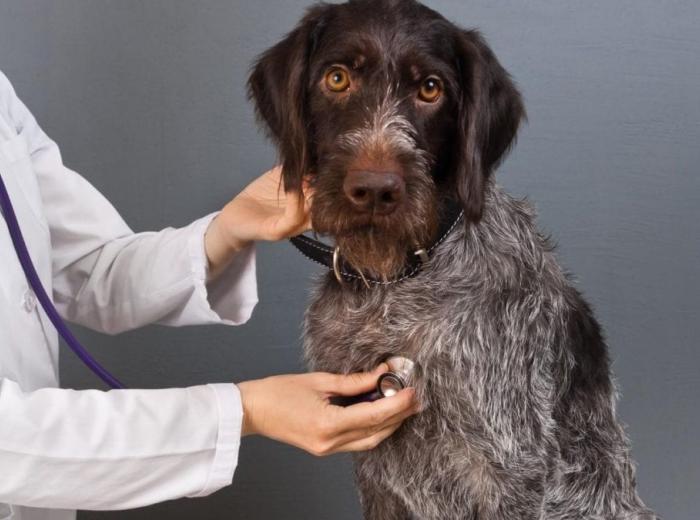
Written by Baylee Bezona-Jackson, CVT
The familiar saying, “an ounce of prevention is worth a pound of cure” remains true, especially when it comes to your pet’s health. In veterinary medicine, the goal of prevention is to prevent a problem from happening entirely or to at least catch the problem early enough to stop it from advancing. If a condition is caught in its earliest stages and treatment is started right away, the chance of a successful outcome is greatly increased. This means less potential heartbreak or discomfort for you and your pet. Additionally, prevention often costs much less than treating a disease or injury once it has already developed and progressed. It is always better to save money than spend it, right?
It is highly recommended, nationwide for all pets to have a check-up with their veterinarian at least once a year. We understand that sometimes it may feel like a waste of time and money to take your pet in for an exam every year, only to be told that nothing is wrong. In reality, those yearly visits frequently catch small problems that can be remedied before they become a more serious and expensive issue. Our pets cannot speak to us and most of the time our pets are very stoic and tolerant, which means they often do not show any outward sign of illness until it has already progressed. Here are some of the most important aspects of prevention for your pet.
- Annual Wellness Exam
- During a check-up, your veterinary team will gather a detailed history about your pet and their lifestyle at home. You may be asked about your pet’s breed, age, behavior, diet, bathroom habits, etc. Next, the veterinarian will perform a thorough exam to learn important information about the health of your pet’s ears, eyes, teeth, heart, skin, joints, etc. A body weight and vital signs will also be taken.
- A thorough wellness exam can catch things that you as the owner may not be able to see at home like a heart murmur, swelling or decreased range of motion in a joint, an ear infection, or even a fever. The questions we ask for the history you provide us with may also give us insight into potential problems.
- Vaccinations
- Vaccines are important to protect pets from various diseases and illness’ that are often highly contagious and deadly. Most vaccines need to be repeated either once a year or every three years. Vaccines can easily be a part of your pet’s annual wellness exam. However, there are many different vaccines, so be sure to ask your veterinarian which ones are required, recommended or right for your individual dog or cat.
- Bloodwork and Other Testing
- Bloodwork is an extremely important and useful tool. Performing bloodwork can give us insight to any potential problems going on inside your pet’s body. Bloodwork can tell us about your pet’s liver and kidney function, glucose level, dehydration level, electrolytes, red and white blood cells, and even if there is an infection going on. A standard bloodwork panel can be done yearly as well, to ensure that we are keeping tabs on all aspects of your pet’s health year to year. For senior pets, bloodwork is highly recommended yearly, because when pet’s age, their organ function and health can often change or decline much faster than a young pet’s. Additionally, pet’s often do not show outward signs of illness until it has progressed.
- There are other types of preventative testing also. This includes heartworm tests, fecal tests, urinalysis, and tests for various other viruses and diseases. For example, heartworm tests ensure us that your dog is not infected with heartworm, which allows us to safely prescribe you dog heartworm prevention. Preventative medication is an affordable once monthly chewable tablet or even an annual injection. Heartworm disease can be fatal and is very expensive to treat.
- Prophylactic (Preventative) Dental Cleanings
- During your pet’s wellness check, their teeth and gums will be examined. The veterinarian will let you know if any concerns are found in their mouth, like gum disease or a broken tooth. Just as it is recommended for humans to have dental cleanings every 6 months, it recommended for most pets to have dental cleanings yearly. Considering that pets cannot brush their teeth every day like we do, it makes sense that their mouth has the potential to get dirty! Brushing your pet’s teeth is a great preventative that you can do at home; unfortunately some pets just won’t tolerate it. Yearly preventative dental cleanings are important because if the tartar and bacteria that builds up on your pet’s teeth isn’t removed regularly, the bacteria in the mouth can spread to other areas of the body, including the heart, and cause serious infection and disease. The bacteria and tartar can also cause the teeth, gums, and even the jawbone to rot. This means you pet will have to have the infected teeth removed. As you can imagine, dental disease and broken teeth are painful for pets also.
There are many different, but equally important ways to keep your pets healthy and happy. However, every pet has different needs, whether it be due to their breed, age or existing health conditions. Open communication with your veterinary team is crucial to provide your pet with the best care possible. We are always here to answer your questions and concerns and our goal is to help keep your pets feeling their best! “Pets are humanizing. They remind us we have an obligation and responsibility to preserve and nurture and care for all life.” -James Cromwell
